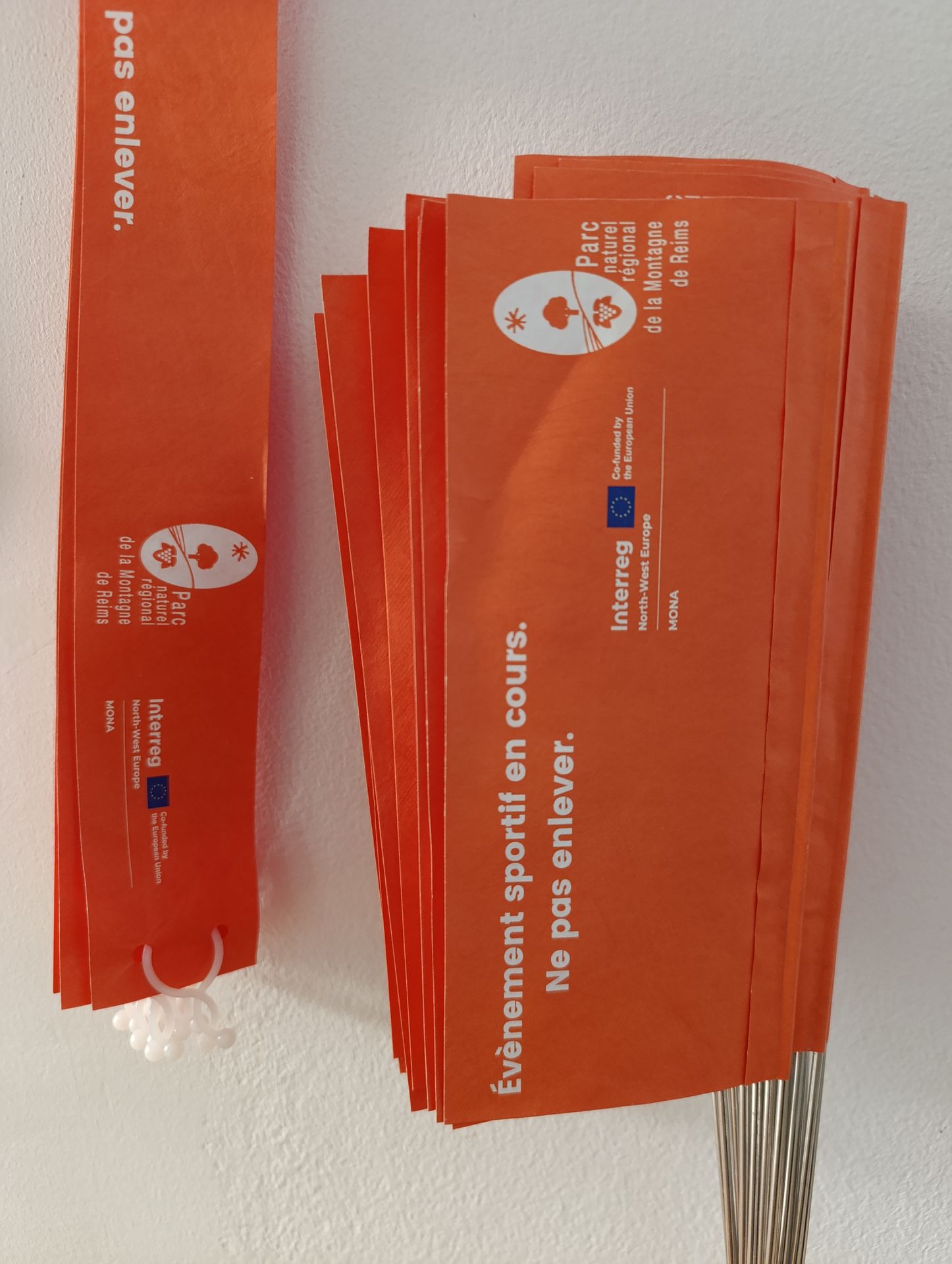As part of Pilot C of the MONA project, the Montagne de Reims Regional Nature Park (PNRMR) is supporting sports event organisers in reducing the environmental and biodiversity impact of their events. To this end, the Park has developed a range of tools, including a methodological guide, a charter and a responsible event signage kit, all of which are available on the Park’s website.
Methodological guide
The guide provides an overview of how sporting events are assessed, as well as the potential environmental impacts they may generate. Its primary aim is to promote the understanding and implementation of environmentally responsible practices among organisers. The content considers the specific nature of sporting disciplines, event timing, and geographical context, ensuring that the recommendations are adapted to local conditions.
Responsible events charter
This charter sets out the 14 commitments that organisers agree to uphold. These commitments reflect the Park's standard recommendations. To access the reusable signage kit, organisers must read the methodological guide and sign the charter, thereby formalising their commitment to the Park’s sustainability objectives.
Reusable signage kit
The kit includes marking tapes and flags, as well as bypass kits for ruts, and has the capacity to cover up to 90 km of trails. It was developed by the Technical Committee for Outdoor Activities, a local forum involving sports stakeholders and event organisers. From the outset of consultations in late 2023, there was a clear demand for reusable marking materials to limit environmental degradation during events.

The year 2025 will serve as a trial period for the signage kit. During this phase, it will be made available to all sports event organisers operating within the PNRMR territory who request it and have signed the Responsible Events Charter.
Multiple objectives
All of the mentioned tools are designed to minimise the environmental impact of outdoor sports on sensitive habitats and species, reduce waste and decrease plastic pollution resulting from events. They also seek to improve accessibility to alternatives for single-use plastics used for route marking, while encouraging organisers to adopt more responsible practices.